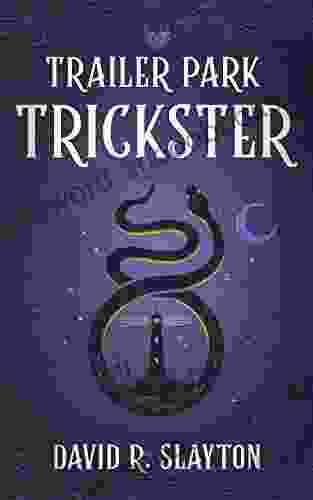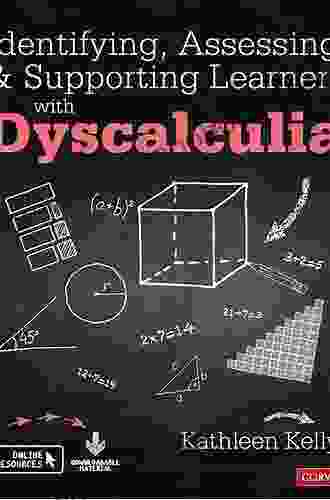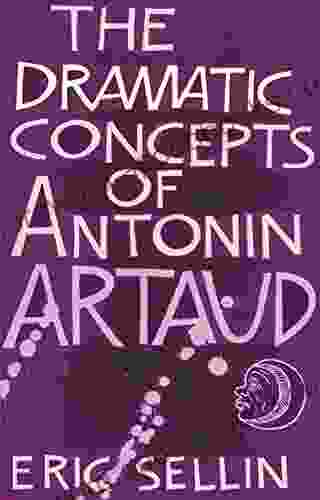Unlocking the Mystery of Dyscalculia: A Comprehensive Guide to Identification, Assessment, and Support

Dyscalculia, a specific learning disability that affects an individual's ability to understand and perform mathematical calculations, has long been shrouded in mystery. With its elusive nature and often misdiagnosed symptoms, many students with dyscalculia struggle in silence, facing academic challenges that can impact their confidence and future prospects.
This comprehensive article aims to shed light on dyscalculia, empowering educators, parents, and individuals with the knowledge they need to identify, assess, and support learners with this condition. Drawing inspiration from the insightful book "Identifying, Assessing, and Supporting Learners with Dyscalculia" by Corwin Ltd., we delve into the complexities of dyscalculia, exploring its symptoms, causes, and effective intervention strategies.
4.4 out of 5
| Language | : | English |
| File size | : | 7111 KB |
| Text-to-Speech | : | Enabled |
| Screen Reader | : | Supported |
| Enhanced typesetting | : | Enabled |
| Word Wise | : | Enabled |
| Print length | : | 368 pages |
Through a combination of research-based insights and practical guidance, this article provides a roadmap for unlocking the potential of learners with dyscalculia, empowering them to overcome their challenges and thrive in the world of mathematics.
Identifying Dyscalculia: A Multifaceted Condition
Dyscalculia is a complex condition that can manifest in a variety of ways. Unlike dyslexia, which primarily affects reading and writing skills, dyscalculia specifically impacts an individual's ability to understand and manipulate numbers. This can lead to difficulties in performing basic arithmetic operations, understanding mathematical concepts, and applying mathematical knowledge to real-world situations.
Some common symptoms of dyscalculia include:
- Difficulty understanding the concept of numbers and their relationships (e.g., place value, number sequencing)
- Challenges with basic arithmetic operations (e.g., addition, subtraction, multiplication, division)
- Poor number sense and estimation skills
- Difficulty understanding mathematical symbols and notation
- Problems with spatial reasoning and visualization
- Challenges with time and measurement concepts
- Avoidance or anxiety related to mathematical tasks
It's important to note that dyscalculia exists on a spectrum, and individuals may experience varying degrees of difficulty in different areas of mathematics. The severity of symptoms can also fluctuate over time, depending on the individual's age, educational experiences, and support system.
Causes of Dyscalculia: A Complex Interplay of Factors
The exact causes of dyscalculia are still not fully understood, but research suggests that it may be caused by a combination of genetic and environmental factors. Some potential contributing factors include:
- Genetic predisposition: Studies have shown that dyscalculia often runs in families, suggesting a genetic component to the condition.
- Neurological differences: Research indicates that individuals with dyscalculia may have differences in the brain regions responsible for mathematical processing.
- Environmental factors: Exposure to negative early mathematical experiences, such as anxiety-provoking math instruction or a lack of support, can contribute to the development of dyscalculia.
It's important to emphasize that dyscalculia is not a result of intelligence or laziness. It is a specific learning disability that requires appropriate identification and support to help individuals reach their full potential.
Assessment of Dyscalculia: A Multi-Pronged Approach
Accurately assessing dyscalculia is crucial for providing appropriate support and interventions. A comprehensive assessment should include a combination of the following:
- Cognitive assessment: This involves evaluating an individual's mathematical abilities, including their understanding of numbers, operations, and mathematical concepts.
- Academic achievement assessment: This assesses an individual's performance in mathematics compared to their peers and grade-level expectations.
- Observation and interview: Observing an individual's behavior during mathematical tasks and interviewing them about their experiences can provide valuable insights into their difficulties.
- Medical history and family history: Exploring an individual's medical history and family history can help identify potential genetic or neurological factors contributing to dyscalculia.
A thorough assessment should be conducted by a qualified professional, such as a school psychologist, educational diagnostician, or neuropsychologist, who has expertise in assessing learning disabilities.
Intervention Strategies for Dyscalculia: Empowering Learners
Effective intervention strategies for dyscalculia focus on building a strong foundation in mathematical concepts and skills while addressing the specific challenges faced by the individual. Some key intervention strategies include:
- Multi-sensory instruction: Engaging multiple senses during mathematical instruction can help learners with dyscalculia better understand and retain concepts.
- Concrete manipulatives: Using physical objects, such as blocks, counters, or measuring tools, can help learners visualize and understand mathematical operations.
- Explicit instruction: Breaking down mathematical concepts into smaller, manageable steps and providing clear explanations can help learners grasp the underlying principles.
- Repeated practice: Providing ample opportunities for learners to practice mathematical skills in a supportive
4.4 out of 5
| Language | : | English |
| File size | : | 7111 KB |
| Text-to-Speech | : | Enabled |
| Screen Reader | : | Supported |
| Enhanced typesetting | : | Enabled |
| Word Wise | : | Enabled |
| Print length | : | 368 pages |
Do you want to contribute by writing guest posts on this blog?
Please contact us and send us a resume of previous articles that you have written.
 Book
Book Novel
Novel Page
Page Chapter
Chapter Text
Text Story
Story Genre
Genre Reader
Reader Library
Library Paperback
Paperback E-book
E-book Magazine
Magazine Newspaper
Newspaper Paragraph
Paragraph Sentence
Sentence Bookmark
Bookmark Shelf
Shelf Glossary
Glossary Bibliography
Bibliography Foreword
Foreword Preface
Preface Synopsis
Synopsis Annotation
Annotation Footnote
Footnote Manuscript
Manuscript Scroll
Scroll Codex
Codex Tome
Tome Bestseller
Bestseller Classics
Classics Library card
Library card Narrative
Narrative Biography
Biography Autobiography
Autobiography Memoir
Memoir Reference
Reference Encyclopedia
Encyclopedia Diane Morgan
Diane Morgan Kk Brown
Kk Brown David N Meyer
David N Meyer Gloria Ajoge Adaba
Gloria Ajoge Adaba Emily Dickinson
Emily Dickinson David Perlmutter
David Perlmutter Randy Brown
Randy Brown Lawrence Howells
Lawrence Howells Sean Spicer
Sean Spicer Silvia Federici
Silvia Federici David D Morrison
David D Morrison David L Ulin
David L Ulin Carol Burmeister
Carol Burmeister David Jacobs
David Jacobs Leann Nickelsen
Leann Nickelsen David Dudley Field
David Dudley Field Donna R Causey
Donna R Causey Kerry Anne King
Kerry Anne King Jennifer Lynn Barnes
Jennifer Lynn Barnes William Zimmerman
William Zimmerman
Light bulbAdvertise smarter! Our strategic ad space ensures maximum exposure. Reserve your spot today!
 Charlie ScottFollow ·2.7k
Charlie ScottFollow ·2.7k Houston PowellFollow ·5.1k
Houston PowellFollow ·5.1k Edwin CoxFollow ·19.3k
Edwin CoxFollow ·19.3k Rod WardFollow ·18.5k
Rod WardFollow ·18.5k DeShawn PowellFollow ·19.6k
DeShawn PowellFollow ·19.6k Theo CoxFollow ·6.3k
Theo CoxFollow ·6.3k Federico García LorcaFollow ·17.6k
Federico García LorcaFollow ·17.6k Graham BlairFollow ·17.1k
Graham BlairFollow ·17.1k

 Douglas Powell
Douglas PowellEscape into a World of Sweet Love and Second Chances with...
Prepare yourself...

 Garrett Powell
Garrett PowellMaster Badminton: A Comprehensive Guide to the Thrilling...
Are you ready to step into the world of...

 Deacon Bell
Deacon BellTrailer Park Trickster: The Adam Binder Novels
Book 1: The...

 Oscar Bell
Oscar BellLeo: The Very Modern Taoiseach
Leo Varadkar's journey...
4.4 out of 5
| Language | : | English |
| File size | : | 7111 KB |
| Text-to-Speech | : | Enabled |
| Screen Reader | : | Supported |
| Enhanced typesetting | : | Enabled |
| Word Wise | : | Enabled |
| Print length | : | 368 pages |
















